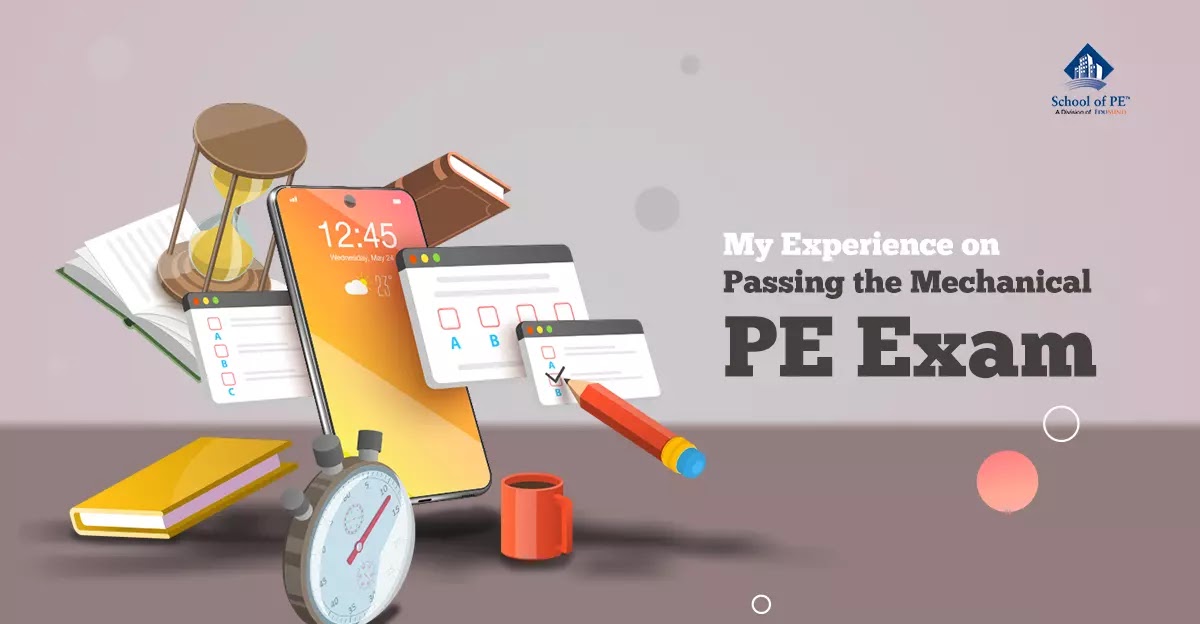I feel that a lot of individuals struggle to pass both the FE and PE exams because they just want to get it over with, attain the license, and move on. My experience with passing the Mechanical PE exam was less of a linear process and more of a journey, though. As I was preparing for the PE exam, I realized that I needed to find other kinds of motivation-it would not be enough to simply want the PE license for a title change or potential pay raise.
The first two steps in my journey were to complete my undergraduate education and pass the FE exam. The FE exam is more focused on undergraduate subjects, which is why it is recommended to sit for the FE exam while in college or a recent graduate. I passed the FE exam in the fall of my collegiate senior year and submitted my transcripts as proof of graduation before my EIT designation became active. My journey continued as I entered the industry and gained four years of work experience as a practicing engineer. As I started my career, I realized that despite beginning as an entry-level engineer, I would finish as a highly trained professional.
During those four years as an EIT, I saw that my projects increased in complexity as I delved more into the industry. I was learning not just hard technical skills, but also soft skills like how to collaborate with co-workers, contractors, and third-party agencies. After my initial four years passed, I became eligible to sit for the PE exam. When I first reviewed the PE exam application, I noticed it was much more involved than the FE exam application. However, this change made sense to me logically since every level in a process typically increases in difficulty. The PE exam would not only consist of a more difficult application process, but also a more challenging exam process in general. These new challenges were part of the journey and contributed to my professional and personal growth.

The PE exam is a much more practical exam than the FE exam, with questions and problems based on actual engineering scenarios that you would see in the industry. For the FE exam, you learn core competencies and theory to help prepare you to pass the exam, enter the career field, and gain experience. When that career experience is gained, you're ready for the PE exam. When I passed the PE exam, it felt like another graduation commencement; I could now practice fully as a licensed professional engineer. Along with the license also came responsibility. I could use my experience to help other engineers strive for their PE License as a reference, as well as provide exam advice for younger engineers.
For me, passing the Mechanical PE exam was always about striving to improve myself. Even now that I have achieved my goal of becoming professionally licensed, I know that my journey is still not finished. I will continue to learn within my industry and fulfill continuing education requirements. That was my motivation; the experience was just that...the experience. My motivation was not just about calling myself a professional engineer or trying to earn a bigger bonus in the workplace. I knew that if I could pass the PE Exam, I could become a better individual, not just for myself, but for the people around me like my family, friends, and coworkers.
No comments :
Post a Comment